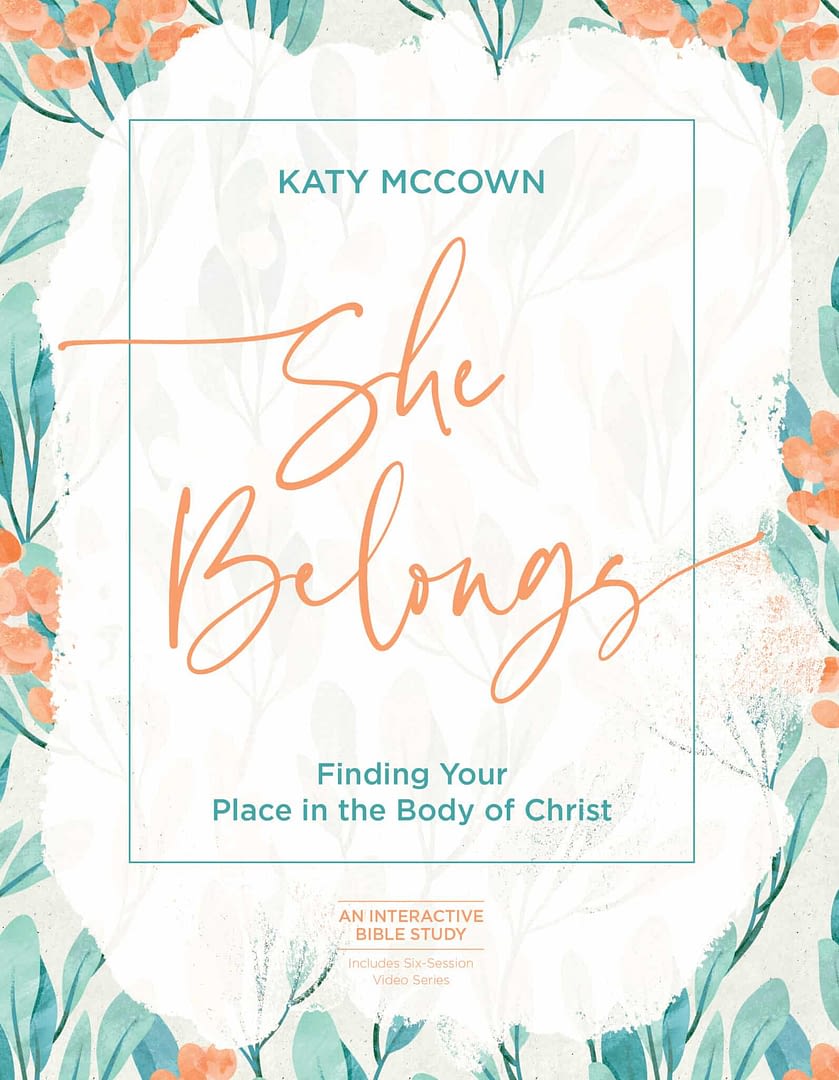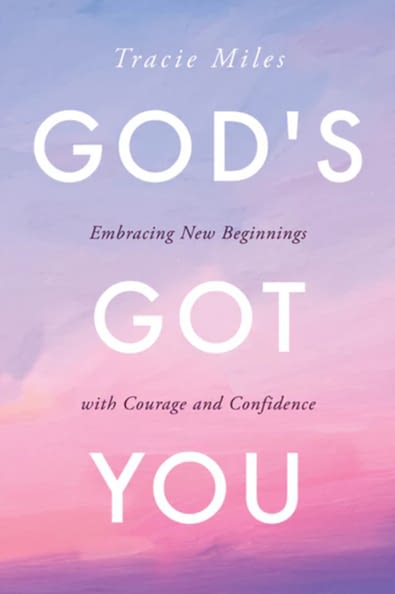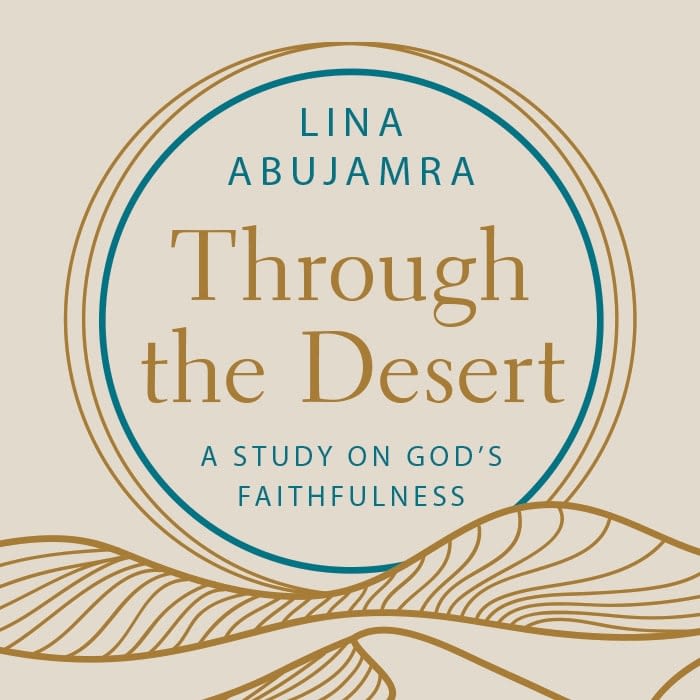You’ve probably heard of Hannah in the Bible before, but if you’re anything like me, you’re a little rusty on your Old Testament stories. So who is Hannah, and what does her life teach us?
As we journey through Hannah’s story, I invite you to pray through each part, making connections between her life and yours. After all, the same God who wrote Hannah’s story is writing yours.
Who Was Hannah in the Bible?
First Samuel 1 opens on the two wives of Elkanah: Hannah, who was barren, and Peninnah, who had numerous children. Peninnah, aware of her societal leverage from her offspring, seemed to enjoy torturing Hannah regularly with taunts and insults (1 Sam. 1:6). The Hebrew word translated as “rival” in verse 6 to describe Peninnah can also mean “rival-wife,” which seems to fit all too well in this situation.
Not having kids in Israel would have likely made Hannah feel depressed and as though her life was meaningless. Women’s roles in ancient society were limited, but childbearing was certainly a significant way to succeed; however, Hannah didn’t even have that. We can only imagine what her community thought of her difficulty in conceiving and how deeply she longed for children.
To sum it up, Hannah was insulted daily, dealing with societal pressure, and depressed about her infertility. She was so brokenhearted that she couldn’t receive her husband’s kindness, eat her food, or stop weeping (v. 7).
Put yourself in Hannah’s shoes. What do you long for to the point of losing your appetite? Do you deeply desire children but struggle with infertility? Want your dream job but can’t reach it? Ache for friendship but still feel lonely? You’re in good company with Hannah.
Hannah Brought Her Struggles to God
What did Hannah do about her broken heart? She went to the Lord’s house to pray (1 Sam. 1:10). She wept bitterly and poured out her heart to God—crying so hard that Eli, the local priest, thought she was drunk!
Some amazing things stand out about Hannah’s heart for God:
- Hannah is the only Old Testament woman who is said to go to the Lord’s house.
- Hannah is the only Old Testament woman to make a vow to the Lord.
- Hannah spoke God’s name, Yahweh, more than any other woman in the Old Testament.
- Hannah called herself “God’s servant” three times in her prayer, showing humility.
- Most remarkably, Hannah knew God more intimately than Eli, the local priest, did.[1]
Wait, slow down—Hannah knew God better than her pastor? Actually, yes, we have a lot of reasons to think this is true. While Eli used a formal name for God, “God of Israel,” Hannah used God’s personal name, “Yahweh.” While Eli sat at the doorway of the tabernacle, Hannah walked right into God’s house to share her whole heart with him. While Eli couldn’t see past the surface or hear God’s voice clearly (see 1 Sam. 3), Hannah saw the heart of her situation and humbly asked for help.
Eli might have known a lot about serving God as a priest, but Hannah was close to the God of the universe.
You may not think of yourself as the most spiritual person or the strongest Christian—especially compared to some other women you might know—but what was so remarkable about Hannah was simply that she went to God. You can do that too. The wonderful thing about God is that He doesn’t need us to start out perfect. He takes us as we are—even when we’re sobbing so hard we look drunk.
I can’t help but think that God brought Hannah close through her deep longing for help. He welcomed her to come to Him. He made Himself available through prayer. And He does the same for you. God is welcoming you into His presence.
Hannah Prayed Honestly
In Hannah’s prayer, she said, “O LORD of hosts, if you will indeed look on the affliction of your servant and remember me and not forget your servant, but will give to your servant a son, then I will give him to the LORD all the days of his life, and no razor shall touch his head” (1 Sam. 1:11).
She was close to God while she wept in pain. If Hannah can cry to God honestly about her problems, so can we. The God of Hannah is also the God of you!
When I pray, I’m usually tempted to pray shallow prayers. “Lord, give me peace” when I’m drowning in anxiety; “Lord, help me grow” when I am terrified about how broken I am.
But I am closest to God’s heart when I cry out honestly to him: “Abba, what do I do these next few months? I am scared of loneliness as I transition away from what I knew into a new place and community. And where are You in all the change? I want You, but it feels so hard to find You. Lord, please provide for me. My life is already Yours, but help me to open my hands and give it to You.”
God wants to hear our hearts as they are, not as we wish they would be. In fact, one in every three psalms is one of lament—complaining, weeping, and begging God for help! God listens to deep brokenness.

Hannah Rejoiced in God’s Help
After Hannah explained to Eli that she was weeping and not drunk, he told her, “Go in peace, and the God of Israel grant your petition that you have made to him” (1 Sam. 1:17). She wiped her tears and walked away.
Soon afterward, Hannah got pregnant and gave birth to a son! Hannah was so exuberant in God’s help that she named her son Samuel, which sounds like the Hebrew word for “heard of God.” Every time she said her son’s name, she would be reminded of God’s help.
And while we’re looking at the significance of names, what about Samuel’s mother? What is the biblical meaning of Hannah’s name? It is truly fitting for her place in the biblical narrative, as her name means “grace” or “favor.” Hannah had been given grace and favor by God, and she rejoiced in God’s help. In fact, Hannah sang a song of joy and deliverance in 1 Samuel 2, remembering how good God had been to her.
When God helps you, rejoice in His help. God has heard you.
Hannah Surrendered Fully
The last part of the story hits me the hardest. Hannah promised to surrender her son to God for the duration of Samuel’s life. This was her only son, her baby, the one she had prayed for and wept for. She promised to give him to God when he was still a little child, barely after she finished nursing him.
Are you thinking what I’m thinking? How on earth could Hannah give him up?
It must have something to do with her closeness to God. Because Hannah gave herself along with her hope and dream of motherhood to God when she was completely broken, I have to think she trusted God with everything. When God answered her prayer, she had verifiable proof that God was trustworthy and reliable. After all, shouldn’t the giver be entrusted to care for the treasured gift itself?
When Samuel was old enough, Hannah brought him to Eli to serve in the temple for his whole life. She gave God her son. Every year, she brought Samuel a robe she had made. Imagine her joy as she fashioned a new garment, delighting each year to make them a little larger to accommodate her growing son.
Again, God proved faithful. Hannah eventually had three sons and two daughters. As for Samuel? He became Israel’s greatest judge, a great prophet, and a counselor for Israel. Hannah’s one act of surrender spilled over into years of goodness for her country.
I genuinely hope that you will come to the end of this story about Hannah knowing that God loves you and hears you. You can trust Him. You can surrender everything to Him. May your own story always be your personal reminder that God is faithful, as Hannah was able to reflect and remember how the Lord was faithful to her.
When we dive into honest prayer, we will see God like never before. Try it. Pray a Hannah-prayer, the kind that isn’t pretty and neat. It is messy. It is honest.
What prayer do you need to pray today? Pour out your heart to God. Weep to Him, beg Him for help, humble yourself before Him.
God will listen to your honest prayers.
Ready to Be Inspired by Even More Great Women of the Bible?
After you’ve had a chance to prayerfully reflect on the story of Hannah in the Bible, be sure to check out these related articles for even more encouraging stories and lessons from the famous women of the Bible!
- Lessons from Sarah in the Bible: Trusting God Through the Wait
- What Eve in the Bible Teaches Us About God, Women, and Our Eternal Purpose
- How Hagar Changed Everything . . . By Waiting
Visit this link to see a complete list of all the Inspiring Women of the Bible we’ve covered so far on the Esther Press website. Alternately, be sure to check out these great recommendations for Bible Studies about Women in the Bible.

She Belongs
A women’s Bible study for anyone who feels anxious and alone trying to handle life without community, She Belongs by Katy McCown shows us that the key to keeping it together is coming together in the body of Christ.

God's Got You
Energizing women to follow their dreams after major life transitions, God’s Got You gives readers tips, tools, and inspiration to step boldly into the next season of their lives.
[1] Robert D. Bergen, The New American Commentary: 1, 2 Samuel, vol. 7. (Nashville: Broadman & Holman Publishers, 1996), 67–69.




